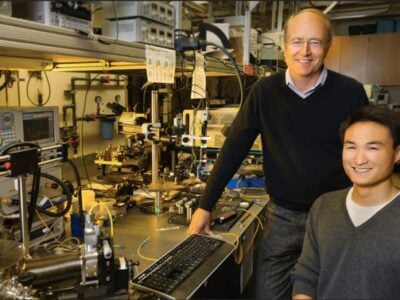Rohde & Schwarz, Synopsys collaborate to boost LTE hardware design
In a strategic collaboration, Rohde & Schwarz and Synopsys plan to exchange technological know-how which could enable design engineers to faster get their LTE and LTE Advanced designs done. at the same time, they will be able to verify their designs of bas station, handset and dongle chipsets for the 4G mobile radio standard. The collaboration equally aims at the LTE Advanced standard for which currently no hardware is commercial available. The move also will help to improve standards compatibility, explained Markus Willems, Synopsys product manager for system-level solutions.
Rohde & Schwarz will contribute its experience and expertise in the segments of signal generation as well as test and measurement technology, while Synopsys will add algorithms and verification experience. In both cases, the technology aims at the Physical Layer with its associated modulation issues.
According to Willems, Synopsys has software libraries for algorithm development systems. The companies’ SPW and SystemStudio products enable engineers to model LTE transmitters as well as Physical Layers. In addition, the company provides functional models of ideal receivers which can be used as a reference for real hardware implementations, Willems explained. With existing receiver models, it is possible to simulate end-to-end communication processes. Both LTE flavors FDD as well as TD-LTE are covered, Willems said.
The companies will verify the LTE and LTE Advanced libraries against Rohde & Schwarz’ LTE signal generators. "Among LTE developers, these generators are regarded as a kind of "Gold Standard", Willem said. In addition, Rohde & Schwarz LTE test equipment will be able to directly read the parameters required for each simulation and verification. "Engineers have to set some 60 to 70 parameters for each test", explained Rohde & Schwarz signal generator product manager Simon Ache. "This is a rather complex process". Automating these settings will offer significant times savings in simulation as well as in debugging, Ache said. In addition, the collaboration reduces the risk of discrepancies between simulation and test which frequently triggers time-consuming debugging activities.
The collaboration aims at providing a standard end-to-end solution for LTE and LTE Advanced test and simulation. However, no joint products or product packages (kits) are planned. "Synopsys users do not need to buy Rohde & Schwarz test equipment; they are not confined to one brand", Willems said.
 If you enjoyed this article, you will like the following ones: don't miss them by subscribing to :
eeNews on Google News
If you enjoyed this article, you will like the following ones: don't miss them by subscribing to :
eeNews on Google News




